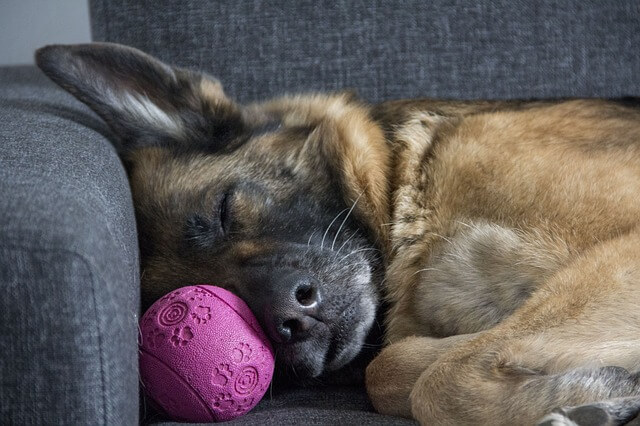 We love our pets, but we can probably all agree that taking good care
of them costs money... sometimes, lots of it! Keeping them healthy, happy,
and comfortable can feel like a never-ending, furry money-pit at times.
Here are a few ways to save
on pet expenses, from food bills to pet supplies to medical costs.
We love our pets, but we can probably all agree that taking good care
of them costs money... sometimes, lots of it! Keeping them healthy, happy,
and comfortable can feel like a never-ending, furry money-pit at times.
Here are a few ways to save
on pet expenses, from food bills to pet supplies to medical costs.
Local classified ad websites (or newspapers), garage sale postings, or even second-hand stores may have supplies your pet can use. With some luck, good timing, and monitoring, you just might find barely-used pet supplies in like-new condition for sale. I know I've re-sold pet stuff that's barely even been sniffed; I thought my pets would love it, and after weeks of encouragement to use the item, they continued to treat it with disdain. By then, I couldn't return the item so I re-sold it to some happy pet owner who was glad to get the item at a discount.

Manufacturers know that people will pay top dollar for their beloved pets. Pet items are often priced significantly higher than the similar human version of the item. Lots of "people stuff" can be re-purposed for pets. For example, a stainless-steel mixing bowl would make a great water dish for your dog - rather than pay double the price for one that's branded with a cute paw logo and marketed specifically to pet owners.
Another example: memory foam dog beds are a popular choice for dogs of all ages. If you have a big dog, though, these types of beds can get pretty pricey. Look for a good-condition, gently-used futon to use as a dog bed. After a few weeks of stalking my local classified ads, I picked up an awesome futon in great condition for $50. The top third could be unzipped from the rest of it, so I ended up with 2 pet beds: a smaller one that my cat loves to use as his lounging kingdom, and a big one that my husky can comfortably sprawl out on.
It's cheaper per pound to buy the larger bags of food than the smaller ones. Save money by buying the largest bag of food that your pet can consume while it's still fresh. Have a friend whose pet eats the same brand of food? Perhaps you can spring for a larger bag and share it, saving both of you money. If your pet eats kibble, store portions in an airtight container to help maintain freshness (another money-saving tip: no need to buy contains specifically marketed for storing kibble - any airtight container will do, and it'll be cheaper, too).
Many pet supply stores have "club cards" or "loyalty discounts". Some are specific to the purchase of certain brands of food; others can be used for any brand, so long as the bag is at least a certain size. Ask them for details.
When you see that you're starting to run low on pet food, spend a few minutes online to search for a coupon. Start with the manufacturer's website. Many offer coupons, and every little bit helps!
Pet toys and supplies can sometimes be found cheaper at online stores, like Amazon. Think: beds, leashes or harnesses, seat belts, kennels or crates, and lots of other stuff, even food! You'll need to factor in the cost of shipping, of course; some stores will offer free shipping if you order order more than a certain dollar value.
It might seem counter-intuitive, but taking your pet to see the veterinarian for routine visits can save you money in the long run. Even if your pet doesn't seem sick in any way, regular check-ups can identify developing issues and the vet can suggest things you can do to help prevent other health problems. For example, he may recommend a flea or tick preventive so that you pet doesn't get an infestation... or he may notice the early signs of dental disease, not uncommon in house pets... which brings us to our next point:
Medical issues should be addressed sooner rather than later. Issues that are allowed to worsen may end up costing a lot more to fix, and the care may become more complicated too. Arthritis is a good example: it's common, and some things can be done to help delay the onset and minimize its effect. Left alone, it can quickly deteriorate to the point where pain management becomes much more complex and expensive to treat. Dental care is another good example. Regular brushing or the use of oral rinses can help to keep our pet's teeth and mouth healthy. Should dental issues occur - regular check-ups at the vet can help spot issues - minor issues are more easily (and more affordably!) dealt with than major dental surgery.
A quality diet and appropriate exercise also go a long ways in keeping pets healthy and happy. Regular exercise is crucial to both physical and mental well-being. Even senior pets can exercise! As for food, we've all heard the saying, "we are what we eat". Feed a good quality food and an amount that keeps your pet in good body condition. Obesity in pets can be a big contributor to health problems.
Sometimes pets get sick despite the best of care. Pet insurance is a good option if you struggle with putting aside funds for one of those inevitable and unexpected visits to the vet. The downside of pet insurance is that it won't cover every type of medical issue, and you have to get approval. The upside is that they may cover a significant portion of large vet bills. If you go the pet insurance route, be sure to get several quotes. Make sure the quotes are for comparable plans and coverage.
You might also consider ditching the pet insurance and "self-insuring" by putting the amount you would have paid for pet insurance premiums into a separate savings account. The downside of this method, of course, is that you need to have the discipline not to spend the funds on other stuff - and the amount you have available is limited by how much you've saved. The good part? You can use it whenever your pet needs it, on whatever he needs it for.
Many prescribed medications for our pets are actually the very same drugs prescribed for humans. Ask your vet if there is a human-equivalent, and if so, ask that he write you a prescription or fax one to a human pharmacy. It is typically significantly cheaper to purchase the medication at "people pharmacies" then it is to buy them from the veterinarian. There are also websites where you can purchase drugs online (with a prescription); if the drugs aren't immediately needed, this could be another option for you (note: not all medication will ship across borders).
Of course, not every medication can be used for our pets. Sometimes the human version contains additional substances that are harmful to pets. Also keep in mind that sometimes it's worthwhile to pay the extra dollars for the "pet version" of a drug; in order to make pets more accepting of a drug, the manufacturer may have coated pills to mask a bitter taste, or added flavouring to make it more palatable to pets.
Pet treats can get expensive, especially if you tend to use them a lot for training or rewards. A bag of dehydrated liver, chicken, or sweet potato, for instance, doesn't tend to last long, especially when the average pet goes crazy for them! Buy a food dehydrator instead - you'll put out more money up-front, but over time you'll re-coup the cost. Rather not spend the money on a dehydrator? You can also dehydrate food in the oven at low temperature.
As a bonus, you'll know exactly what goes into the treats. Buy fresh, quality ingredients and make treats whenever you like.
There are so many wonderful but homeless pets waiting to be adopted in animal shelters and rescue organizations. Ask what the adoption fee includes. Often times, it covers costs like spay/neuter surgery, initial health exam and vaccinations, any medical procedures needed to get the pet healthy and adoptable, tattoo or microchip, and other extras like a license or a few months of pet insurance. The total of these costs if paid separately for a pet purchased at a store could be significantly more than the adoption fee at a shelter ... and as a big plus, you've saved a life and given a deserving pet a new home.